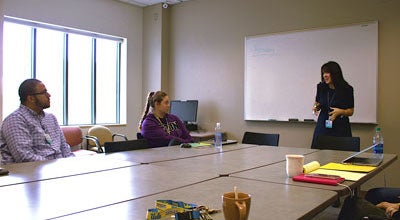Research Goals

The Aftercare Program is studying ways to improve recovery for individuals with schizophrenia and related disorders, and to overcome challenges that might get in the way of full recovery. We are studying a number of approaches to help patients recover, including cognitive training and exercise.
In order to track progress during treatment, we use a number of different types of assessments, some in-person and some remote, including symptom and functioning measures, neurocognitive and social cognitive assessments, psychophysiological measures. . Research assessment batteries are conducted every 3 to 6 months throughout the 12 months of treatment. Our participants are compensated $25/hour for the time they spend completing these assessment batteries. Some assessments may include an MRI brain scan.

The assessments are used in several research projects that are designed to find out more about the symptoms and problems that brought our participants to psychiatric treatment, how these factors influence recovery from these problems, and how they change as the participants challenge their brains to improve as part of their cognitive training. We also use these research assessments to help us gain a better understanding of the role that the brain plays in attention, learning, and memory in schizophrenia and related disorders. We will also learn more about how people with schizophrenia process interpersonal and emotional information, and how that might be related to how well they are doing in their everyday life.
Participants will also regularly be asked about their symptoms and how they are getting along with others. This is a routine part of receiving treatment at the Program.
A list of publications of findings from the UCLA Center for Neurocognition and Emotion in Schizophrenia can be found here.


